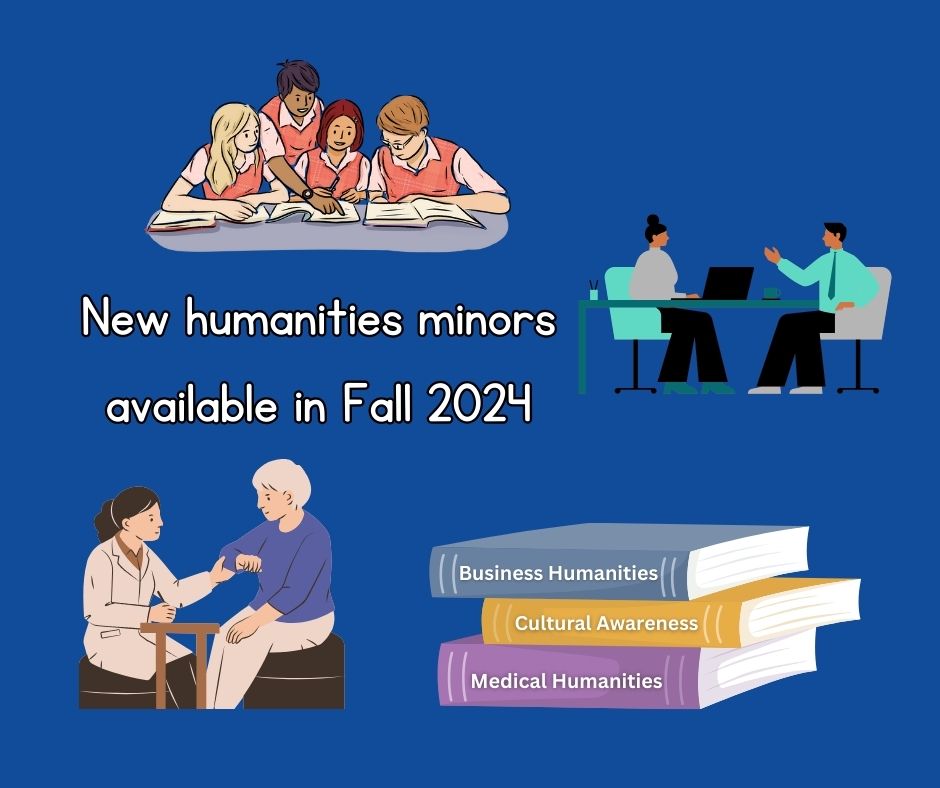Two new minors will be available in the College of Liberal Arts in Fall 2024. The business humanities and medical humanities minors aim to prepare students in their future careers.
Kristin LaFollette, assistant professor of English and affiliated faculty of gender studies, will teach medical humanities classes for the minor in Fall 2024.
What does humanities mean?
“The humanities are disciplines that help us to think about and understand the human condition and creativity,” LaFollette said.
She said people produce theater, creative writing, film, television and music to express themselves.
“These are things that people create,” Lafollette said. “They’re forms of self-expression that also teach us things about who people are, what it means to be human and how we can connect with other people.”
Why should students take a medical humanities class?
LaFollette said students in health professions can benefit from a medical humanities minor to help them become patient-centered practitioners.
She said the goal of the medical humanities minor is to help students learn skills to see the patient as a whole person rather than only focusing on the medical aspect.
“They have those skills before they start learning medicine in medical school, and they can apply the skills that they’ve learned here and in the humanities program to what they’re learning,” LaFollette said. “Maybe even talk to their medical school programs about the importance of learning these things.”
She said poetry, fiction, nonfiction, films and theater are some genres that will be used to teach the material.
“Typically, those have something to do with medicine, and like, ‘What does that teach us about how we can better connect with people or better understand people or better treat people in a medical setting?’” LaFollette said.
Why should students take a business humanities class?
Business students can learn the humanistic field of business.
LaFollette said students will learn how to make a connection and relationship with others.
“The goal of the program is to help them think more culturally and globally, to be able to understand how to better connect with people and not just see money or products, but rather see, ‘These are people to be connected with and to help and to have relationships with,’” LaFollette said.
How does a business or humanities minor help students in the future?
Whether in a business or medical environment, being able to connect and communicate can teach students to build a humanistic relationship with clients or patients.
LaFollette said the programs are to “recenter their focus” on the humanistic component that is often overlooked in business and medical education.
“I think especially in business, you have to be able to think globally and think about how other people, in other cultures, respond to things and how to communicate with them in the best way,” LaFollette said. “With medicine, you’re dealing with people who are at their most vulnerable moments, and you have to be able to connect with them on a human level to help them get through whatever it is that they’re dealing with and experiencing.”
She said medical humanities are becoming common in institutions of higher education and that they help students become empathetic communicators and thinkers, which are traits sought after by medical schools.
LaFollette said the skills and knowledge taught in humanities help students become successful in life.




